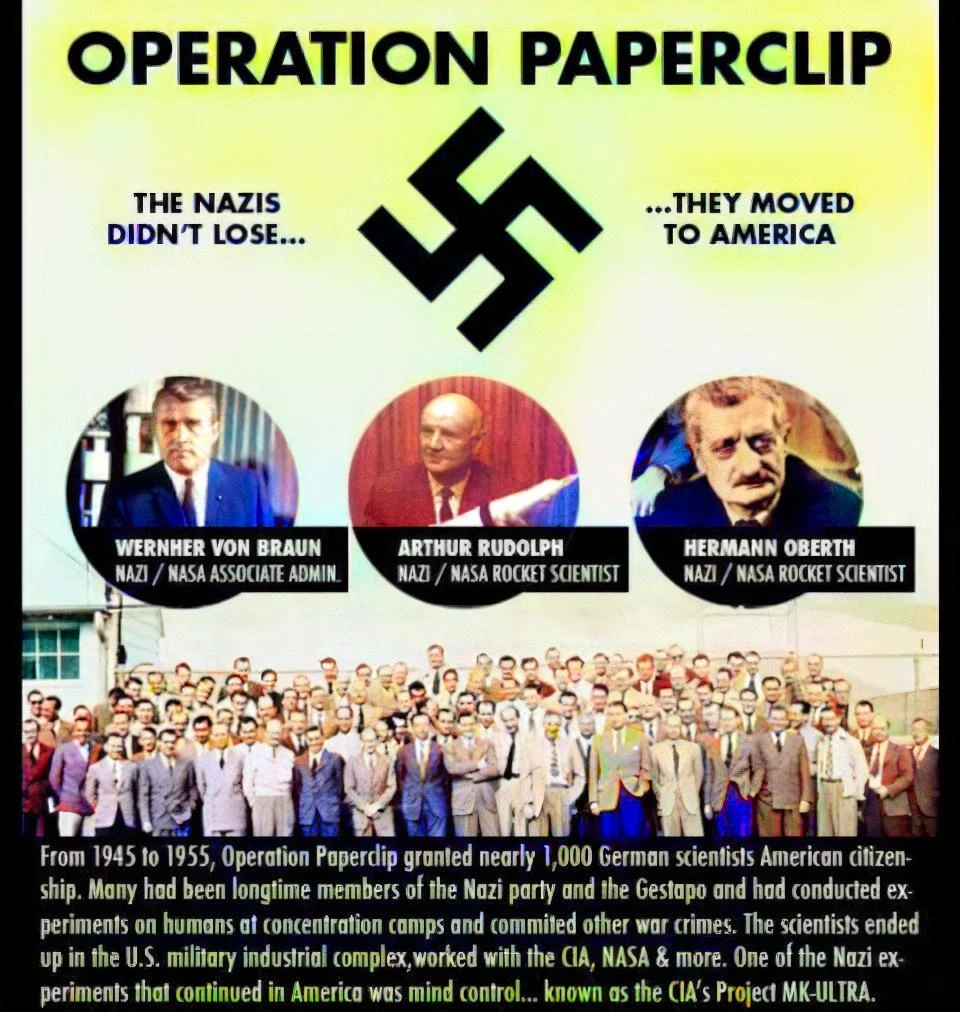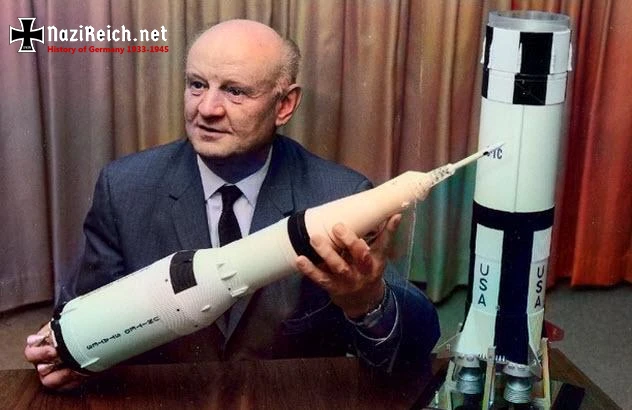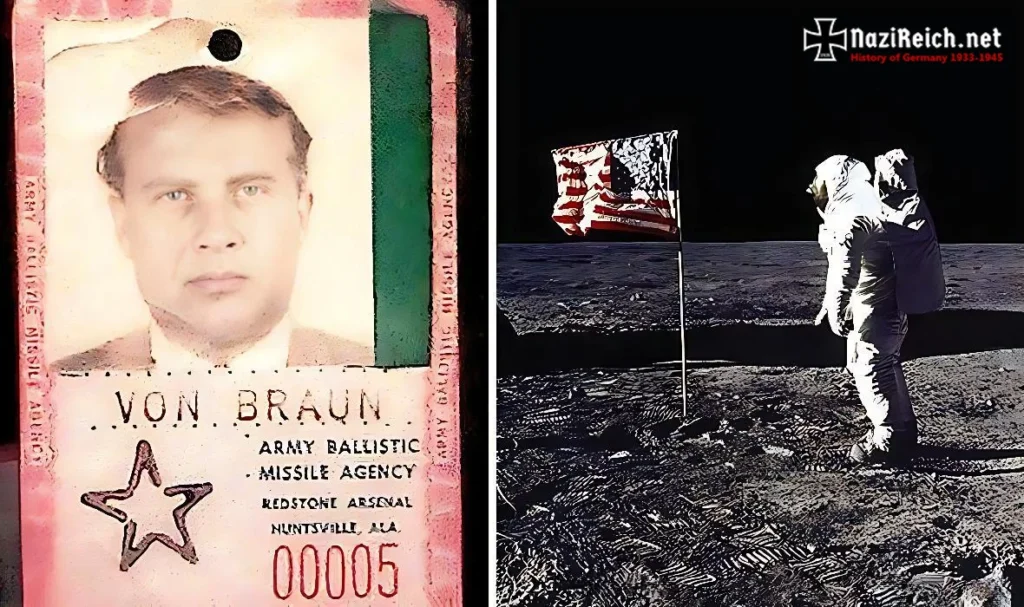The intertwining of NASA’s pioneering days with the sinister legacy of Nazi Germany is a complex and unsettling chapter in the history of space exploration. At the heart of this narrative are the figures who once served Adolf Hitler and later propelled the United States to lunar achievements. This narrative explores the profound moral and ethical dilemmas that arise from utilizing expertise developed under reprehensible circumstances.
Fast Track:
TL;DR

The US space program’s early successes were significantly bolstered by the scientific contributions of former Nazi rocket engineers. After World War II, both the United States and the Soviet Union scoured the defeated Nazi regime for technological expertise, particularly in ballistic missile and space technology. This scramble led to Operation Overcast, later known as Operation Paperclip, a secret initiative by the U.S. to transport German scientists, including notable figures such as Wernher von Braun and Arthur Rudolph, to work on American soil.

Wernher von Braun, a name synonymous with rocket technology and space exploration, was a member of the SS and an admitted participant in the Nazi party. Despite these affiliations, his expertise was deemed invaluable for the nascent U.S. space program. Von Braun’s team was integral to the development of the Redstone rocket that launched the first U.S. satellite and later, the Saturn V rocket that enabled humans to reach the Moon.
Arthur Rudolph, another prominent figure brought over during Operation Paperclip, played a crucial role in the development of the V-2 rocket during the war. Both he and von Braun worked under conditions that exploited forced labor from concentration camps, a fact that has since marred their scientific legacies.

Despite their Nazi pasts, both von Braun and Rudolph received accolades and honors in the United States, highlighting a troubling disconnect between their contributions to space exploration and their wartime activities. This dual legacy raises significant ethical questions about the moral cost of technological progress.
The operation, while instrumental in advancing U.S. aerospace capabilities, has left a controversial legacy. It forces a reconsideration of how history honors individuals whose achievements are significantly tainted by their past actions.
TL;DR
- 🤔 Ethical Dilemmas: The recruitment of Nazi scientists poses profound ethical questions about balancing scientific contributions against their moral transgressions.
- 📦 Operation Paperclip: This secret initiative brought over 1,600 German scientists, engineers, and technicians to America, effectively sanitizing their involvement in war crimes.
- 🏅 Legacy and Honor: Figures like Wernher von Braun and Arthur Rudolph are commemorated in various forms across the United States, despite their roles in wartime atrocities.
- 🚀 Impact on Space Exploration: The expertise of these individuals was crucial in establishing the U.S. as a leader in space exploration, yet it also compels us to reflect on the moral cost of this leadership.
- 📜 Reevaluation of History: The ongoing debate about how to recognize the contributions of these figures without glorifying their Nazi affiliations encourages a deeper examination of historical narratives.
This narrative compels us to reflect on the moral implications of scientific progress and the complexities of honoring individuals whose pasts are marred by significant ethical breaches.
